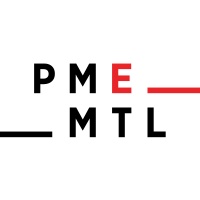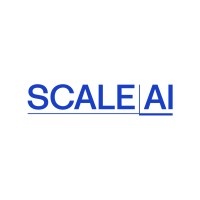
Open
PME MTL — Social Initiatives
Last Update: December 9, 2025
Montréal, QC
Supports Montreal social economy projects from planning to growth
Grant and Funding
At a glance
Funding available
Financing goals
Integrate new technologies
Increasing community impact
Eligible Funding
- Maximum amount : 50,000 $
- Minimum amount : 5,000 $
Timeline
- Open Date : November 14, 2019
Eligible candidates
Eligible Industries
- All industries
Location
- Montréal
Legal structures
- Non-profit
- Public or Parapublic institution
- Social economy enterprise
Annual revenue
- All revenue ranges
Organisation size
- All organization sizes
Audience
- All groups
Non-profit candidates
Sector of operation
- Social Services
- Economic, Social and Community Development
Target groups
- Business owners / entrepreneurs
- Nonprofits / charities
Revenue structures
- Mixed revenue (50%+ earned)
Scope
- Local
Overview
PME MTL — Social Initiatives (Fonds de développement de l’économie sociale) offers non-repayable subsidies of up to $50,000 to social economy enterprises and non-profit organizations based in Montréal. The program supports projects from planning to growth, covering eligible expenses such as technology acquisition, working capital, professional fees, and capital costs (land, buildings, equipment, incorporation).
Activities funded
- Development and launch of new social economy enterprises or projects in Montréal.
- Expansion or growth projects for existing social economy organizations.
- Implementation of innovative social initiatives exploring new sectors or approaches.
- Projects aimed at developing new expertise within the social economy ecosystem.
- Job-creating or job-maintaining social economy projects with a formal entrepreneurial model.
Examples of admissible projects:
$ 50,000
Launching a cooperative urban farming initiative to address food insecurity
$ 50,000
Developing a mental health support application for youth in underserved communities
$ 50,000
Developing a new IT platform to streamline social services for low-income families
$ 50,000
Acquisition of green energy technology to improve environmental sustainability of our facilities
$ 50,000
Creating a mobile health van to provide medical services to rural communities
$ 50,000
Implementing a new digital marketing strategy to increase online donations and engagement
Eligibility
- The applicant must be a social economy enterprise or a non-profit organization (NPO) carrying out a social economy project.
- The organization must have its head office located in Montréal.
- The organization must demonstrate a formal entrepreneurial approach.
- The organization must generate at least 20% of its annual revenue from the sale of goods or services.
- The project must demonstrate the ability to create or maintain jobs and include an investment by the organization of at least 20% of the total project cost.
Who is eligible?
- Social economy enterprises based in Montréal
- Non-profit organizations (NPOs) carrying out a social economy project in Montréal
Eligible expenses
- Acquisition of technology, software, patents and similar intangible assets.
- Working capital required to support the organization’s operations and project activities.
- Professional fees (e.g. external experts, consultants, specialized services) directly related to the project.
- Capital expenditures such as land, buildings, equipment and incorporation expenses.
Eligible geographic areas
- Organizations headquartered in the city of Montréal.
Selection criteria
- Assessment of the entrepreneur’s qualifications by the joint investment committee (CIC).
- Evaluation of the project’s overall viability in relation to the fund’s objectives.
- Verification of alignment with the fund’s specific requirements.
How to apply
1
Identify your service center
- Enter your business's postal code or select your service area on the map provided by the organization.
- Consult the experts in your region for personalized advice.
2
Preparation of the request
- Write a detailed description of the social economy project, including the objectives, innovations, and targeted sectors of activity.
- Prepare the project budget, specifying the self-financed sources and the capital investment.
- Document the company's capacity to create or maintain jobs.
- Gather relevant supporting documents, such as financial statements and the organization's bylaws.
3
Submission of the request
- Contact the assigned service department to obtain the specific application form.
- Fill out the form accurately and attach all required supporting documents.
- Submit the application to the common investment committee (CIC) for evaluation.
4
Follow-up of the request
- Receive confirmation of receipt of the request from the organization.
- Maintain contact with the service center for any additional information requests.
Additional information
- Subsidies are intended to support projects from the initial planning phase through to organizational growth.
- The fund specifically aims to foster innovative social economy projects that explore new sectors, approaches, or areas of expertise.
- Each application is reviewed by the joint investment committee (CIC) of the relevant PME MTL hub.
- The committee assesses the entrepreneur’s qualifications and the project’s viability in relation to the fund’s objectives and requirements.
Apply to this program
Frequently Asked Questions about the PME MTL — Social Initiatives Program
Here are answers to the most common questions about the PME MTL — Social Initiatives. This section explains what the program is, how much funding is available, eligibility requirements, application deadlines, and other important details to help you determine if this grant is right for your business.
What is the PME MTL — Social Initiatives?
How much funding can be received?
Who is eligible for the PME MTL — Social Initiatives program?
What expenses are eligible under PME MTL — Social Initiatives?
Where is the PME MTL — Social Initiatives available?
Is the PME MTL — Social Initiatives a grant, loan, or tax credit?
Who are the financial supporters of the PME MTL — Social Initiatives?
Apply to this program
More programs like this

Grant and FundingClosed
MAPAQ — Food Processing Program — Component 2
Enhancing productivity through food industry automation assistance

Grant and FundingOpen
ESSOR – Component 1C: Support for investment projects (implementing a digital plan)
Support for investment projects in Quebec

Grant and FundingOpen
SCALE AI — Acceleration
Supports Canadian AI startups and SMEs focused on value chains

Tax CreditsOpen
Development of E-Business Tax Credit (CDAE)
Tax credit for development of a Quebec e-business

Tax CreditsOpen
Research, Innovation and Commercialization Tax Credit (CRIC)
Refundable tax credit for Quebec business R&D and precommercialization

Grant and FundingClosed
NovaScience Program - Support for projects in scientific culture and innovation
NovaScience promotes scientific culture and innovation development

Grant and FundingClosed
Support for Innovation and Productivity for Québec manufacturing companies (SIPEM) - Part 1
Supports technological innovation for Quebec manufacturing productivity

Grant and FundingOpen
ESSOR – Component 1B: Support for investment projects (digital diagnostics)
Support for investment projects through digital transformation

Grant and FundingClosed
Support for Innovation and Productivity for Québec manufacturing companies (SIPEM) - Part 2
Boost productivity through targeted technological innovations

Grant and FundingClosed
Program to support the development of agriculture and agri-food in the regions
Support program for regional agriculture and agri-food development
Sign up to our platform to access the PME MTL — Social Initiatives information sheet for free
Get access to 10,000+ programs, practical guides, personalized alerts, and an AI assistant to support your grant applications.